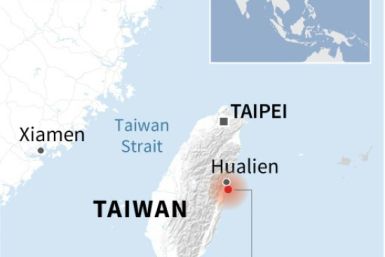Weak S4 Sales: Is Samsung Going the Way of Apple, BlackBerry, Nokia, Motorola?
Due to consumers' perception that the Galaxy S4 is not much different from previous smartphones released by the South Korean tech giant, Samsung sales are on a downward trend.
The below investor expectations of the flagship unit caused Samsung to lose $25.3 billion in market capitalisation in June, following the 10.8 per cent decline in the sales of the smartphone since its release on April 26 in the U.S. The weaker sales led JPMorgan Chase and Morgan Stanley to lower their sales forecast and profit estimate for Samsung.
The consumer aversion to high-end models is felt not only by Samsung but also its main competitor Apple, whose share price plummeted 9.4 per cent due to consumer disappointment in the same month after it released the iPhone 5.
While the S4 sales declined even in Samsung's home ground, Chinese tech firms Huawei Technologies and ZTE sold $100 phones in South Korea, making them a bigger threat to Samsung.
Oh Sang Woo, an analyst at Leading Investment & Securities in Seoul, explained, quoted by Bloomberg, "Consumers find no good reason to buy the S4 since it has no big difference with its predecessor."
The S4 features a 5-inch display, 13 megapixel camera and motion-detecting software. But these features are not enough to impress consumers that JPMorgan eventually reduced its profit estimate for Samsung by 9 per cent and cut its sales forecast to 60 million from the initial 80 million for 2013.
Even Samsung has cut its monthly orders of components from suppliers, prompting industry observers to ask if the South Korean giant is also leaving the number one position just like previous holders of the cellphone market throne from Motorola to Nokia to BlackBerry and Apple.
All four are attempting a comeback by releasing newer models, but it appears their efforts are not enough to propel them to regain their lost sales crown. Motorola is set to release the Moto-X, Nokia just released its Lumia series, BlackBerry came out with BlackBerry 10 and Apple is expected to roll out within the year the iPhone 5S.
In the case of BlackBerry, the company released last week quarterly figures that were not as optimistic as the initial forecast of CEO Thorsten Heins. The firm logged $3.1 billion sales and suffered a 13-cent loss per share, lesser than the BlackBerry prediction of $3.4 billion sales and 7 cents earnings per share.
BlackBerry even forecast a few weeks back the death of the tablet in a few years, but it was its Playbook that died with no eulogy as the company's Web site removed the product and retained only software update for current owners of the unit.
With Samsung sales now feeling the consumer pinch, the question that is inevitable is could it be that the next few years would be the era of Made-in-China phones?






